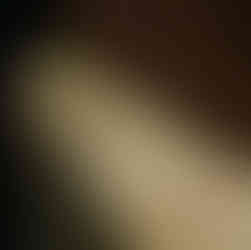Humidity vs Your Piano
- Ryan Hacker
- Aug 21, 2023
- 5 min read
Updated: Sep 28, 2023
Most people know that high or low humidity/temperature can mess with wood in different ways. You aren't supposed to leave a furniture project outside in the summer if you're worried about the wood bowing, and you should make sure your garage is temperature controlled during winter, so the wood doesn't crack. Temperature on its own doesn't mess with wood too much, especially finished or treated wood. However, humidity can quickly bend or warp wood. Ever seen a 2x4 in the lumber aisle that is so warped it's practically unusable?

Here's the thing to remember: pianos are made of wood! The wood in a piano is affected by humidity just the same as wood anywhere else, which leads to many effects and defects. For example, high humidity can loosen glue joints that hold together different action parts. I've seen high humidity lead to pieces falling out of the action during play, keys coming apart, hammer felt peeling off, and many others.
It's clear that high humidity leads to drastic damage just from the above pictures. The hammer felt peeling will change the tone significantly, reducing volume and making the piano much harder to play (although there are some musicians that specifically want some bass hammers peeling for their more mellow tone, it is generally agreed that peeling hammers is not a good thing in your piano). The part that fell out of our own antique Mason and Hamlin makes that note unplayable, and the key that has no glue on the button had nothing to reinforce the middle, which led to it snapping. All of these things can be reglued to fix them, as you'll see with the key below.
That key actually came from a client's Cable piano which I was asked to tune. That note had poor regulation which led to the hammer "bobbling" or hitting the string multiple times, so I tried to pull the key out to look underneath it. Normally, keys are very sturdy and it's safe to pull them out, but this one had no glue on the button that is meant to reinforce the middle, and the wood snapped quite easily. I was able to repair it with glue both on the inside and the outside as a brace, but I had to worry about it happening again in the future, possibly to other keys. The question was, why did that glue joint dry up in the first place?
After checking my hygrometer, I realized the humidity in the room that held the piano (a basement that wasn't very well insulated) was at 60%. That's high enough for the glue to moisten, the wood to loosen up, and the glue to dry again without the wood being bound, leaving the key weakened in the middle. There are a few ways to fix this: move the piano to a more stable room, place a dehumidifier in the room, insulate the room, or place a dehumidifier in the piano. I had a dampp-chaser sensor and a dehumidifier rod on hand that I had pulled out of the 1974 Wurlitzer that will be covered in a future post, and I offered to install it in this client's piano as a fix.
The dampp-chaser is designed to keep the humidity inside the piano around 42%, and it will turn the rod on and off to bring the level down. This will help prevent the piano from having any high-humidity-related problems in the future, and also take the pressure off the client from having to check on it himself. At the next tuning visit in the winter, I'll check to see if the humidity also gets too low, as that can lead to wood getting too dry and cracking. If it does seem to have issues, I can hook up another system inside the piano to help maintain regular moisture in the wood parts. Typically, the keys or rounded action parts won't crack, but action parts that are thinner like flanges can crack and cause those notes to be unplayable. There's also the possible issue of soundboard or bridge cracking, which can change the tone of the piano, cause buzzing noises during play, or cause volume to drop excessively. For now, I'm confident that this piano will not have any further issues related to high humidity and will play very well.
One other aspect of humidity affects the way tuners schedule visits. The pinblock in a piano is a very thick block of wood that holds the tuning pins tightly so that the strings stay in tune. When I come to tune a piano, I'm tightening and loosening the strings by turning the tuning pins in the pinblock. Because it's made of wood, it also is affected by changing humidity, puffing up in the summer and shrinking in the winter. These changes are imperceptible to the human eye, but it drastically affects the tuning stability of the piano. This is why tuners generally recommend tuning a piano every 6-12 months. After a full cycle of the seasons, your piano will have certainly gone out of tune. In Tennessee, or any southern state, I especially recommend getting your piano tuned every 6 months because the humidity changes are wildly different between summer and winter. While the amount of play a piano gets can certainly affect a piano, there's a reason why even pianos that haven't been touched in years are out of tune despite the strings being held at such high tension. If the humidity never changed, your piano's tuning would rarely change.
While this sounds like a lot, there are a few tips to remember that can help maintain your piano and its tuning.
Keep your piano in an air-conditioned room. If the temperature is kept stable, it is likely that the humidity will be kept stable too. If you are someone who likes to leave door and windows open to let in the breeze, just keep in mind that you're letting in moisture which could affect the piano negatively, so try to keep that to a part of the house that doesn't have the piano in it.
Keep your piano against an interior wall. Exterior walls will be more likely to have moisture seeping in, and the wall itself will be colder or hotter than a wall that is entirely inside and insulated. If your piano is touching a stable wall, the piano itself will be more stable.
Avoid any activities that will change the humidity in the house, such as canning.
Play the piano! If you play your piano regularly, you'll know as soon as something goes wrong, either with the tuning or the play. The sooner you know, the sooner you can call a technician to come take a look and diagnose the problem. If one key starts to malfunction and it can be diagnosed quickly, you may protect the piano from any other similar problems, which will save you from overspending on repairs.
I hope you know a little bit more about the external factors than can affect the health of your piano. Remember, pianos were built with multiple generations playing them in mind, so taking care of your piano can mean having a loved heirloom to pass down through the family. Maybe you're a studio or church that isn't worried about that, but maintaining the health of your piano is still vital no matter who you are or what you use your instrument for. If you think your piano has any humidity related issues, or you would like me to come and take a look at your piano for another reason, please don't hesitate to contact us or schedule a service.


























Comments